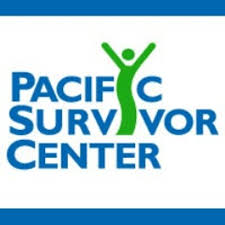Helping & Supporting Victims
Why would an Sexual Violence victim stay silent?
Knowing what you know now about Sexual Violence, it’s really hard to believe that a victim of Sexual Violence can be silent…sometimes for years. But there are many reasons why victims (especially children) of Sexual Violence may delay telling or never tell about an Sexual Violence experience, whether it happened just once or on repeated occasions.
It might be hard for someone to tell because they may...
Be afraid of not being believed or of being judged.
Be ashamed, embarrassed about, or feel responsible for the abuse.
Have been threatened by the abuser – with violence against themselves, their family, friends, or pets.
Have been influenced or bribed by the perpetrator with benefits (e.g., gifts, affection, love, acceptance, or status).
Not know who they can tell or trust.
Be afraid of what will happen if they tell (e.g., the family will break up, a parent will go to jail).
Not recognize they have been abused. This is especially true for young children and those with disabilities.
(This information was [for the most part] borrowed from the 2013 Vermont Governor's Prevention of Domestic and Sexual Violence Taskforce report.)
How Can I Avoid “Victim Blaming”?
Victim-blaming attitudes are one of the barriers that place survivors in greater danger.
In order to stop victim blaming, it is helpful to understand why people do it in the first place. One reason people blame a victim is to distance themselves from something unpleasant that happened to someone and they may not be comfortable identifying with the situation - in other words, they "don't want to get involved."
The other scenario has to do with "labeling" or "accusing" the victim of wrong-doing, which makes it appear as if the victim were "different" from the person "blaming." For example, people reassure themselves by thinking, "Because I am not like her, because I do not do that, this would never happen to me."
We need to help people understand that this is not a helpful reaction.
What does Victim Blaming look like...why is it dangerous and...what can you do about it? Learn More
Getting Help
Sex Abuse Treatment Center (SATC)
24-hour Hotline: (808) 524-7273
Domestic Violence Action Center (DVAC)
Oahu Teen Alert Program Helpline: (808) 531-3771
Neighbor Islands Teen Alert Program Hotline: (800) 690-6200
If you have an Emergency, please call 911.







